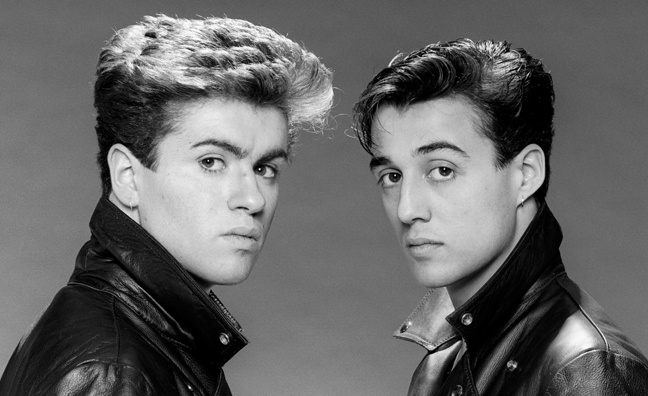Wham!'s debut album Fantastic turns 40 this month, and to celebrate Sony Music is launching a mammoth catalogue campaign, kicking off with a new box set and documentary. Here, Music Week meets Andrew Ridgeley, plus Sony Music's Joanna Kalli and film producer Simon Halfon, to discuss the band's legacy, share memories of George Michael and find out why Wham!'s name will resound for generations to come...
WORDS: PAUL STOKES
COVER PHOTO: CHRIS CRAYMER
ANDREW RIDGELEY PHOTOS: HARLEYMOON KEMP
“We knew that it was going to be a fairly proscribed affair, so there were no real surprises,” Andrew Ridgeley tells Music Week, recalling one of his seminal 1980s moments. “The experience was quite odd. There was a certain form to the way things had to be done and there was a wariness. A pervading wariness…”
What’s the Wham! man describing? No, not the ritual of hauling yourself out of bed early to be zany on Saturday morning children’s TV as censorious producers watched on, but his memories of Communist China.
As the first ever Western pop group to play the country, in 1985 Ridgeley and George Michael found themselves the focus of intense scrutiny as the world's media – and the Chinese authorities – honed in on this unique cultural exchange.
Forty years on, Wham! are set for another burst of global attention this summer, courtesy of new Netflix documentary, WHAM!, which will be released the world over on July 5.
With new collection Wham! The Singles: Echoes From The Edge Of Heaven following on July 7, it promises to be no fleeting revisit of the duo's career. Indeed, Wham!’s catalogue is set to enjoy the kind of reevaluation that has been lovingly lavished on George Michael's solo work in recent years.
“We've been wanting to work with the Wham! catalogue for a long time, but it’s only in the last couple of years that plans have come together,” explains Joanna Kalli, director of artist marketing at Sony Music Commercial Group.
Kalli reveals that it is the 40th anniversary of the pair’s debut album, Fantastic (released July 1, 1983), that has reopened the doors.
“We've worked very closely with Andrew, as well as George Michael Entertainment,” she says. “Then when the Netflix film was green lit everything came together perfectly in terms of timing. We’re right in the middle of a bunch of anniversaries.”
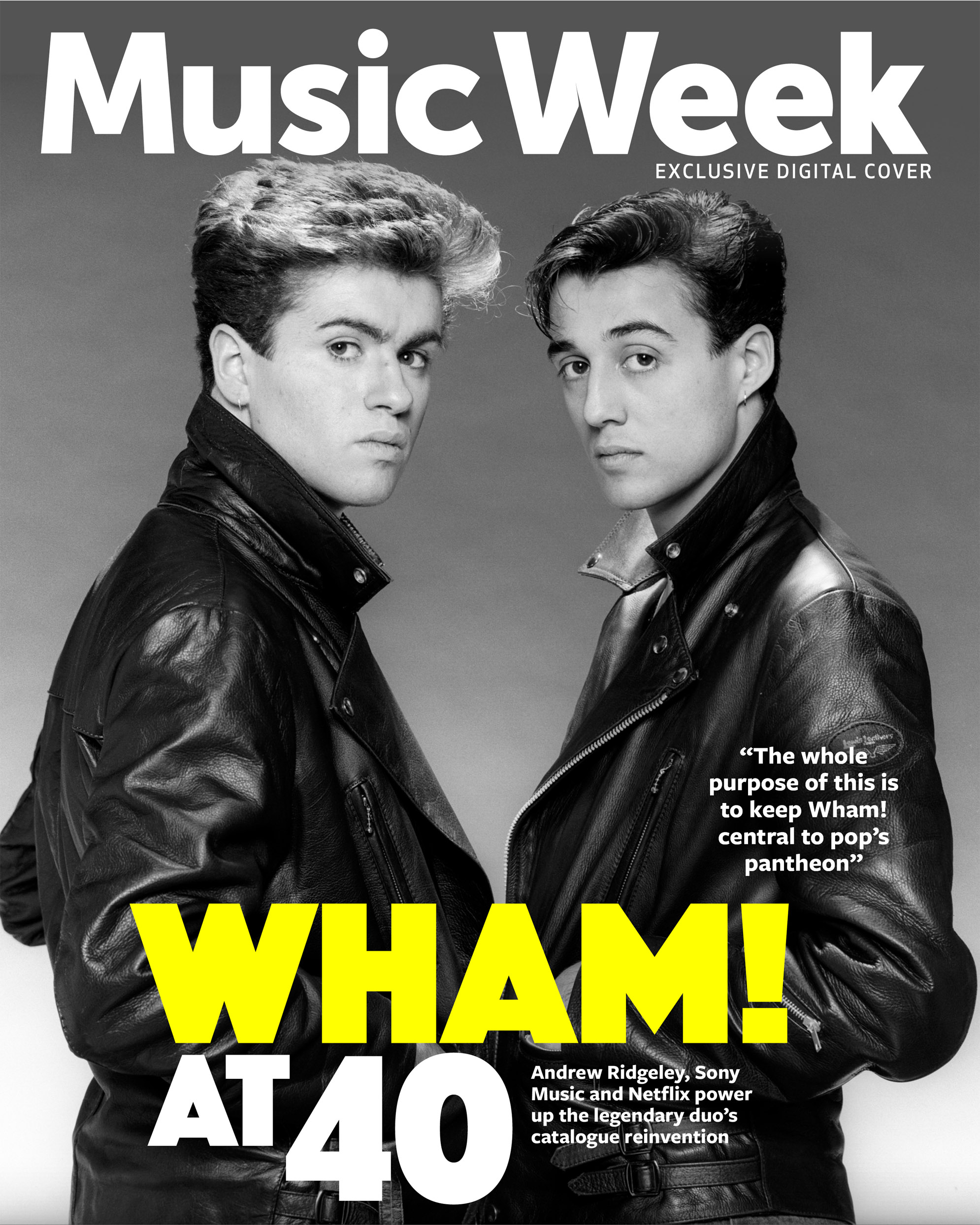
Indeed, Club Tropicana’s own 40th also comes in July, and Last Christmas and second album Make It Big mark similar milestones next year. Meanwhile, a series of events including the trip to China and the band’s 1986 Wembley farewell are also ripe to be celebrated over the next few years.
“It's been well worth the wait,” says Kalli. “I think you have to give these things time to come together in an authentic way. We've tried to carry on the approach we take with George Michael’s catalogue in that it has to feel right. Our focus has very much been on George Michael’s solo career, so now it’s the turn of Wham! to stand in the spotlight.”
The initial impetus behind the Netflix documentary was the publication of Ridgeley’s memoir, Wham! George Michael & Me in 2019.
The documentary’s co-producer Simon Halfon, whose own credits not only include Oasis doc Supersonic, but a long-term creative collaboration with The Style Council and design for George Michael, fills Music Week in on the story.
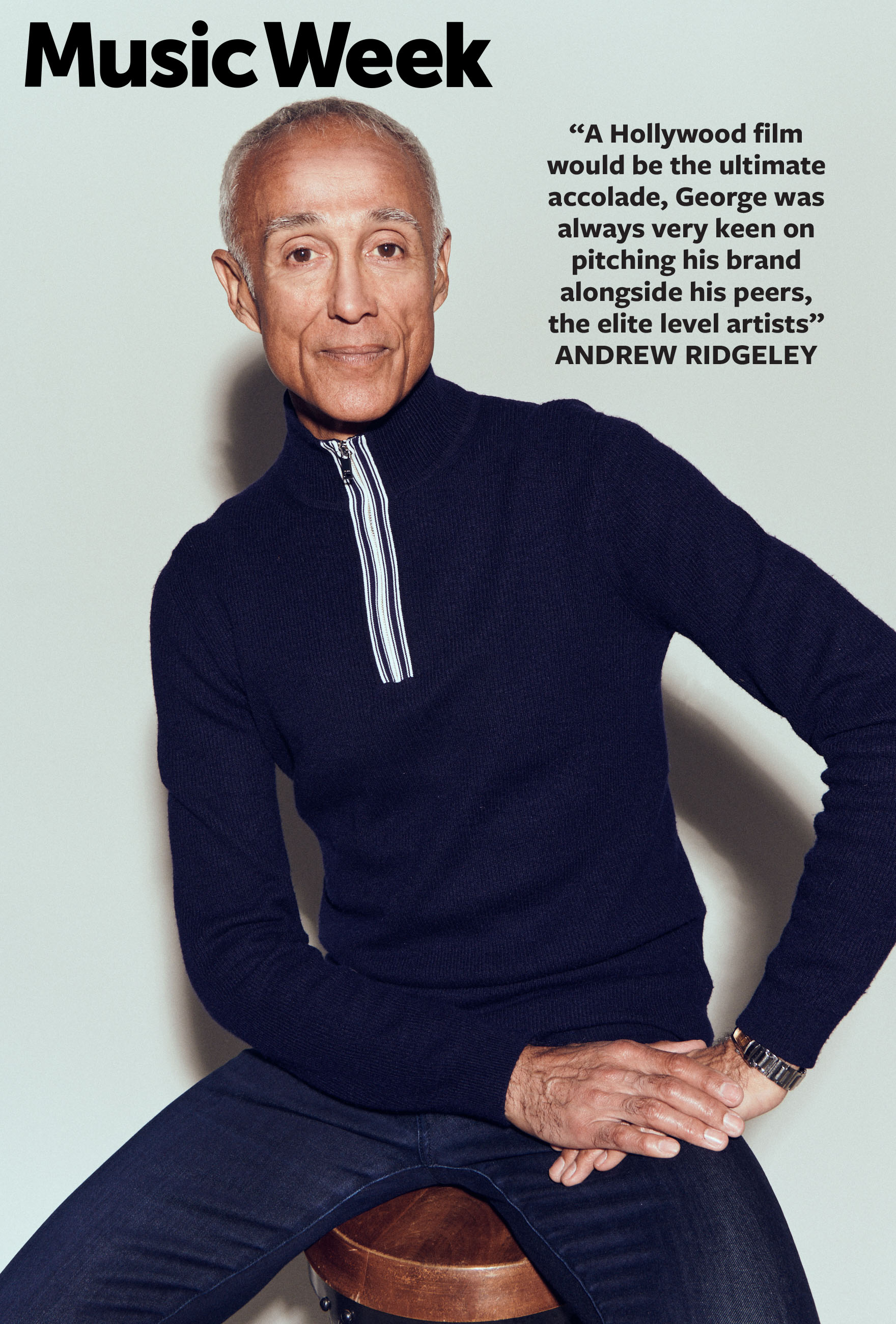
“Andrew called me about doing a documentary, so I emailed Kate [Townsend, VP original feature documentaries] at Netflix and John Battsek [producer Searching For Sugar Man, One Day In September] who I was keen to work with,” he explains. “I hadn't met either but they both replied straight away saying, ‘Come in tomorrow!’ At that meeting, they both said ‘Yes!’. The director, Chris Smith [Fyre: The Greatest Party That Never Happened, Tiger King], was the same, no hesitation. Believe me, it is never that easy, I promise you!”
Revelling in a cavalcade of rediscovered 1980s footage, the documentary is anchored by a series of 50 scrapbooks kept by Ridgeley’s mum that chart the band’s rise from bedroom recordings to stadium gigs, via press cuttings, photos and fan letters.
Meanwhile, the telling of Wham!’s story is left to the boys themselves, who narrate the picture. Ridgeley conducted a series of new interviews, while George Michael’s retrospective thoughts come from a series of audio recordings that include his candid yet charming admissions about finding validation through stardom, Band Aid rivalries, plus a frank discussion of his sexuality and society at the time.
“We struck gold with audio of George talking about Wham!,” declares Halfon. “There are various interviews, but the bulk is from [DJ] Mark Goodier. I remember listening to those tapes and getting quite dewy-eyed. George was a mate and it felt like sitting there having lunch with him. He had a remarkable ability to tell a fascinating story that would end with him laughing at himself. But this isn’t him talking randomly, literally if we had written out a list of questions for this film these would have been the answers we needed.”
George Michael’s presence has also influenced Sony’s Wham! campaign. The seven-inch record case edition of the new singles collection (which also comes in various vinyl and CD pressings, including a zoetrope 12-inch that plays videos via an app) is a replica of an item the star singer-songwriter once owned. What's more, his views have infused the project throughout.
“George absolutely guides everything,” declares Kalli. “He had, quite rightly, really strong opinions about what he wanted to do and not do. He was quite vocal about that – thank God! – because it now means it's quite easy for us to figure out what we should or shouldn't do. He was so honest and had such integrity, that we have to continue that otherwise we'd be doing a disservice to his legacy.”
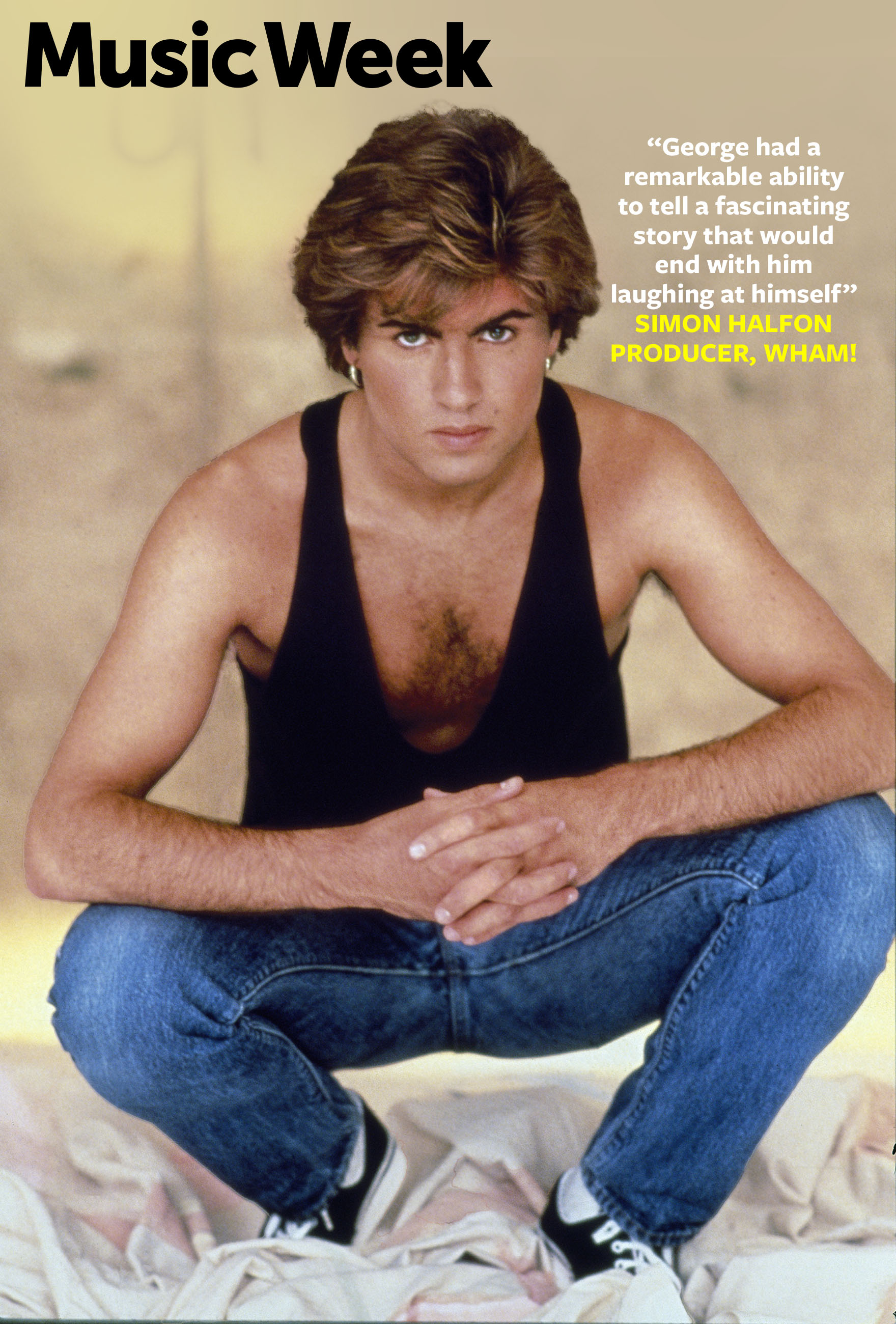
PHOTO: TONY McGEE
Naturally, Ridgeley, too has been instrumental in the release.
“He absolutely understands what needs to be done, from discussing concepts for the releases themselves to social media,” confirms Kalli. “We launched a Wham! TikTok profile a few months ago and Andrew has really understood the brief. One of the reasons Wham! have remained relevant is that they were two young guys who achieved great success yet stayed quite grounded. Andrew still has that playful sense of humour and he is incredibly passionate about Wham! so he's been really instrumental in helping us shape the campaign.”
As the social media launch suggests, introducing Wham! to new audiences is a priority, something Kalli expects streaming – of both music and picture – will help to facilitate.
"We’ve done a lot of work, the fact that Last Christmas got to No.1 twice last year means it feels like people are really starting to pick up on Wham!” she suggests. “It’s not just the core fans, it’s a younger audience, so I think there's this huge potential to do some really exciting stuff with DSPs and the catalogue going forward.”
Indeed, the doc and singles collection are just the start of Wham!’s renewed rap. Not only are both of their studio albums due for vinyl reissues later this year, but with anniversaries coming thick and fast, the duo’s singles will each enjoy the focus as part of an “always on” strategy.
“The idea is that this all kicks off a longer-term plan,” explains Kalli. “We’ll celebrate the anniversaries and a lot of the cultural touchstones over the next few years. It really does feel like we’re on the brink of something exciting.”
To find out how it all came together, we sit down with Ridgeley, beginning with a journey back to his and George Michael’s first ever meeting…
The documentary begins with George’s first day at Bushey Meads School, and your teacher asking who will look after the new boy. Why did a child who was labelled “disruptive” on his school report stick his hand up?
“I thought, ‘Great, a new boy! That's something different.’ I was 12 years old, so that was the long and short of it. There really wasn't a great deal of thought.”
Good thing you did, as the pair of you were soon talking about forming a band, right?
“The idea was floating around from the age of about 14, but George felt that he had to get his exams out of the way. So initially, we put the date off until after O-Levels, but then George was hesitant. There was a lot of pressure from his family to achieve academically, so he thought it’d be best to wait until after A-Levels, at which point I'd had enough and railroaded him into forming [ska band] The Executive.”
You made a studio demo with that group, but after it fizzled out you encouraged him to record songs as a duo on four-track at home…
“We were, in some ways, a consequence of punk. For a whole generation punk liberated music-making for people with really creative ideas who were not necessarily exceptionally competent musicians. If you had three or four chords, punk allowed you to write a song, and plenty of people did. So that's the basis on which we started. The Fostex four-track was a seminal moment in music history because it facilitated home recording and the development of ideas.”
That four-track demo certainly had a few ideas on it…
“It was Wham Rap, two verses and the chorus of Club Tropicana and a verse and chorus of Careless Whisper. Looking back, why we thought that was sufficient to incentivise a record company to sign us I really don't know. But the fact is that it was, and they did.”
Talk us through that process. You convinced a neighbour, Mark Dean of Innervision, to sign you although it might not have been the greatest contract…
"It’s legend that we signed possibly the worst recording contract in the history of man. But had we not signed it, we wouldn't be making records. So it's certainly not a regret. The fact that we didn't receive a penny for 12-inch singles, one could argue, is slightly less than fair seeing as we sold thousands of them. But at that point in time, whilst we knew that probably we shouldn't have been signing it, that was our opportunity and we took it.”
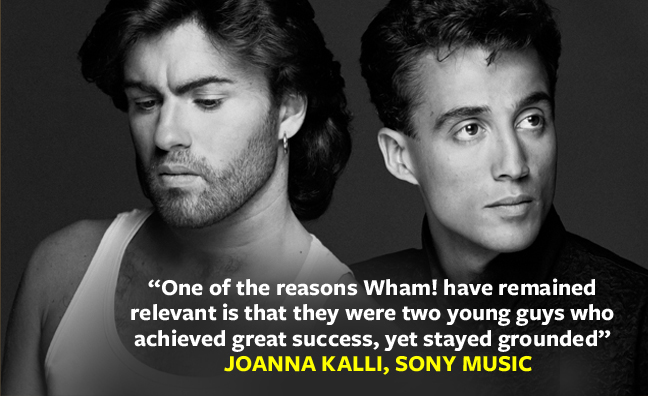
PHOTO: TONY McGEE
What was it like going from school into the music industry? Did it meet your expectations?
"We didn't have any expectations and we were left alone. We were never A&Red in any way, shape or form. Mark Dean was a really good A&R man. He knew a good track when he heard one, otherwise he wouldn't have signed us on the basis of one song and bits of two others. Innervision were supportive in so far as, artistically, we had complete freedom to do what we wanted.”
Did you really not have a manager until Simon Napier Bell was recruited after three singles?
“No, we didn't. We had great counsel from [publishers] Brian Morrison and Dick Leahy. They signed us in ’83 and they were integral to our decision-making. Dick was the man who persuaded George not to bury the master tape for Fantastic in his garden! So we had enough people around us to guide us through until Dick and Brian realised that as our success grew we really did need representation.”
That seems like a lot of responsibilities for two 20-somethings…
“Yeah, but in the initial stage there weren't that many decisions, we just needed to get some hit singles. It was all geared towards that. We were promoting Wham Rap and Young Guns in the autumn of ’83 with PA appearances in little clubs around the country. We were doing that because we weren't a band and no one was going to pay to put a band together for us. So we conceived a performance with what we had – and I had a girlfriend! We developed, evolved and adapted the dances we did with Shirlie [Kemp] when we went out into a performance to go with the tracks.”
Around that time, George decided you wouldn’t share songwriting, and he would write most of the tracks. Again, it seems quite mature to go along with it without causing a fuss...
“Well it wasn't a question of going along with it. Neither of us were stupid, especially with regard to songwriting, and his songwriting was developing in quantum leaps. It was just plain as day that his songwriting was in a different league to mine, so it was an easy decision. Our main purpose was to make Wham! a success and to achieve the highest heights as quickly as we could. Both of us had points to prove, so success was an essential element of our motivation.”
Has putting this new collection together revealed anything new about the songs?
“No, I wouldn't say so. It is perhaps surprising that they still sound as fresh 40 years on. They certainly stand the test of time. We recently mixed them in Dolby Atmos and it was really intriguing because some of those tracks were made when we were 19. The recordings are good, so the fact that they have endured for 40 years is testament to the quality of the songwriting and the character and vitality they're suffused with.”
Is returning to that era a bittersweet experience for you?
“No, no. It's been a thoroughly pleasurable experience, in actual fact. There's nothing in reviewing what was a golden chapter in mine and George's lives that gives me a cause to feel negative. Obviously, it's extremely sad that Yog was lost to us so early, but that doesn't colour my view when looking back to the Wham! years.”
Considering what you achieved, it is surprising there were only four Wham! years…
“We came to understand very quickly that Wham! would have a finite lifespan. It wasn't something that either of us imagined taking through into adulthood, it was the representation of our youth. We were growing up, but Wham! was never going to grow up.”
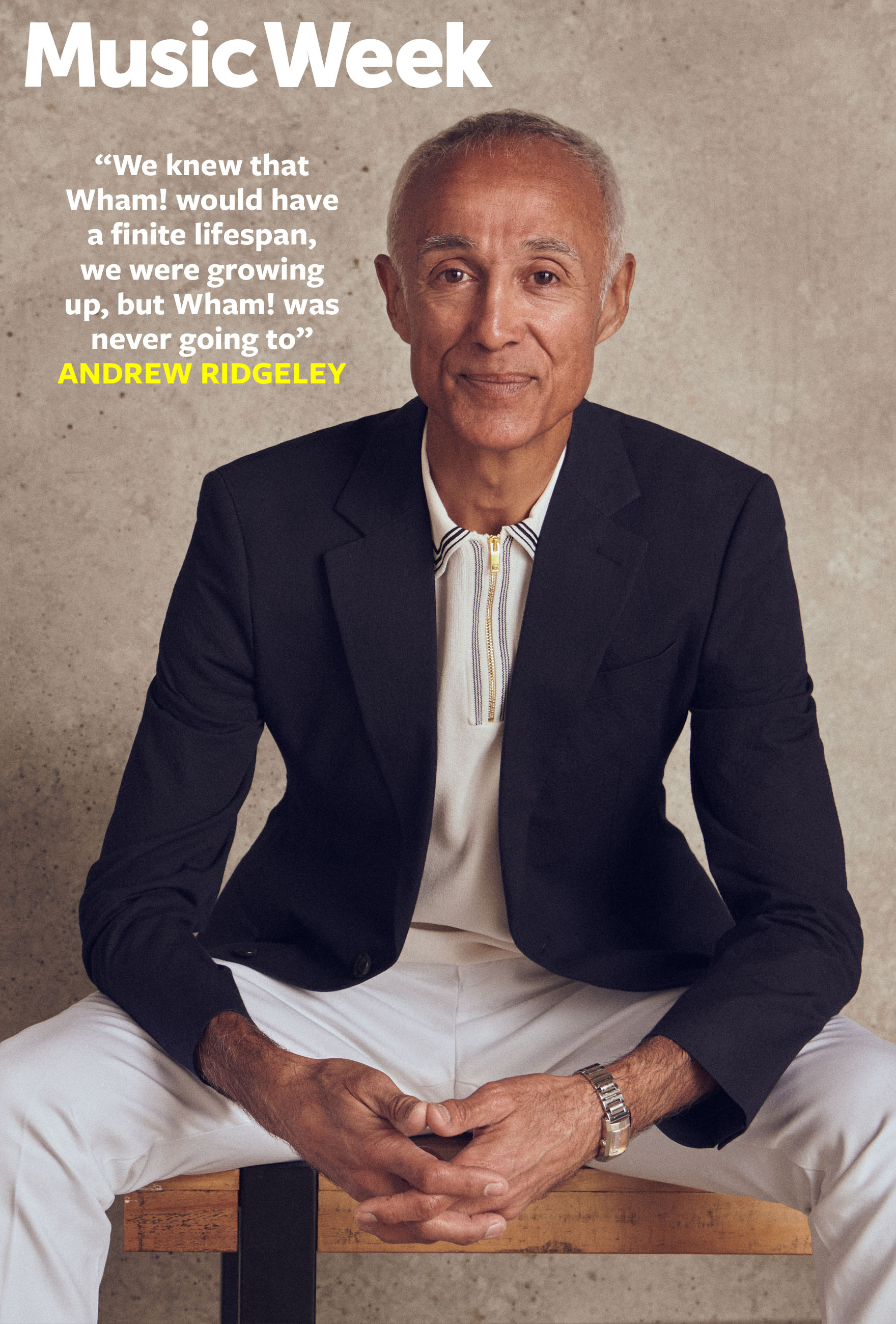
That said, your China shows are one of the enduring PR stunts of all time...
“I was highly sceptical about the idea, initially. I understood very well that Yog didn't want to tour the States in a manner that we would be expected to after the success of the Make It Big album. We would be looking at a 30-date tour and that was physically and mentally very demanding, so he just wasn't prepared to submit himself to those rigours. As much as I didn't like it, I understood it. Simon [Napier Bell] very cleverly conceived the idea of a big PR exercise to raise our profile in the States to place us in the super group strata. I agreed to it because otherwise we'd have been twiddling our thumbs. The actual exercise achieved its goal, which confounded my scepticism. We became household names in the States and it facilitated the stadium tour of the late summer of 1985. With some clever selection of venues where our sales were concentrated, it elevated us into that global supergroup strata. The legacy of that exercise in China, though, remains largely unknown to me, but we're hoping to address that over the course of the Wham! 40th anniversary events.”
With that campaign ahead, how has the music industry changed since?
“The industry is more integrated than it used to be. Sony encompasses virtually every aspect of the industry, whereas back in the 1980s they were really just focused on records. So the breadth and scope of their business is larger. Is it any different? Yes and no. Hit songs are still hit songs, I don't think that changes much.”
You’ve become acquainted with TikTok recently, although based on the documentary’s archive footage it seems you were TikTok-ready for decades before it was invented…
“Arsing around? Well, that comes naturally. [Laughs].”
Have you enjoyed that side of it?
“I haven’t despised it as I thought I might. It's been rather more fun and in fairness, Sony’s young team is great. They’ve made it an amusing experience. It's all very silly and tongue-in-cheek. I can't bear taking oneself too seriously, and earnestness is absolutely anathema, so TikTok suits me.”
If that's your outlook then you must approve of Lewis Capaldi’s remake of the Club Tropicana video for his track Forget Me?
“I was astounded by it, to be honest. To have replicated the look of the video in such detail, frame by frame, is a remarkable feat.”
How do you think Wham! songs will fair in the current pop landscape?
“The whole purpose is to try to generate new audiences to keep Wham! central in the contemporary music pantheon. When I was doing signings for my book I was surprised by how many youngsters came. One 21 year-old even gave me his dissertation, which he got a first at the London School of Economics with, called Wham! And China: In The 1980s. So Wham! has an appeal to youngsters, there's no doubt about that. There's a visceral energy to the tracks and there's real tautness in the music’s character. It's powerful and attracts people.”
How about a biopic? The Queen and Elton John movies have proven popular with younger crowds…
“I would be delighted. I absolutely loved Bohemian Rhapsody. I was approached by several studios in the wake of my book, and Wham is a great story – it’s a dreams come true movie, so it's got all the ingredients. I would hope that the George Michael Estate might see their way to a film because I think it would be the ultimate accolade, and Yog was always very keen on pitching his brand alongside his peers, that elite strata of artists. I think a Wham! movie would mean his legacy would be given... Well, it’s the very top rung and I know that's what he would want. So yeah, I'd love to see it happen. Fingers crossed.”
We have the documentary for now, which concludes with Wham!’s final Wembley gig. Did the friendship that started when you stuck your hand up at school endure?
“Yeah! A chapter ended but it wasn't the end of our friendship. I appeared on stage with Yog two or three times when he performed as George Michael and we used to hang out quite a lot. We retired Wham! but the essence of our friendship never changed. We still found delight in each other's stupidity, right up until the end.”
